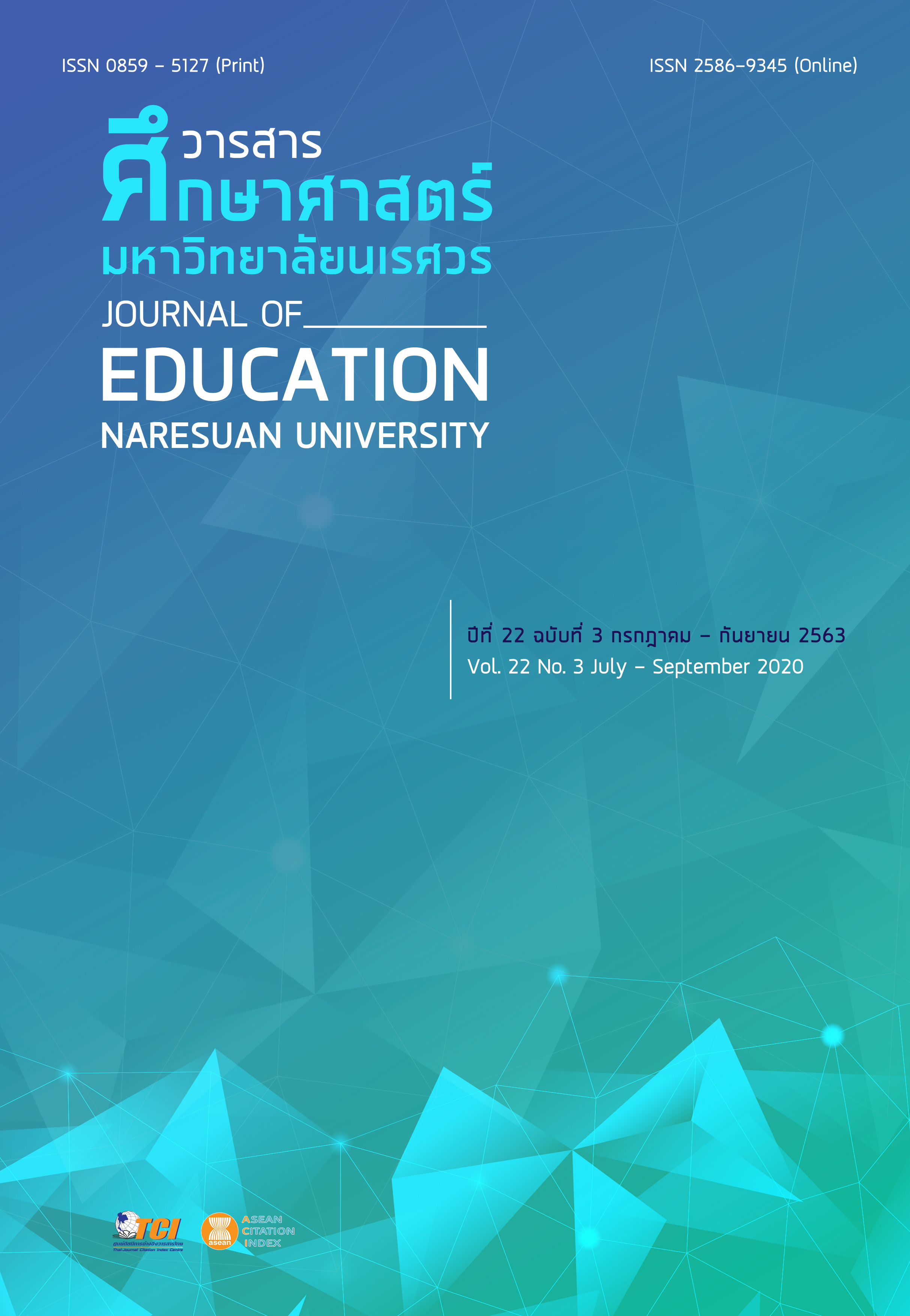A COMPARISON OF LEARNING OUTCOME IN FOOD QUALITY ASSESSMENT AND CONTROL SUBJECT BY LABORATORY BASED LEARNING AND PROJECT BASED LEARNING การศึกษาเปรียบเทียบผลการเรียนรู้รายวิชาการประเมินและควบคุมคุณภาพอาหาร โดยวิธีการทำปฏิบัติการกับวิธีการเรียนรู้ผ่านโครงงาน
Main Article Content
Abstract
The purpose of this research was to compare learning outcome for Food Quality Assessment and Control subject by using 2 different learning methods which were Laboratory based learning and Project based learning. The participants consisted of 80 third year students of Prince of Songkla University, Surat Thani Campus registered for Food Quality Assessment and Control subject. The research instruments included achievement test, problem solving thinking skill test and inquiry skill test. The data were statistically analyzed by using average, standard deviation and t-test. The results showed that;
1. Students who learned by project based learning had learning achievement in Food Quality Assessment and Control subject higher than students who learned by laboratory based learning at significant level of 0.05.
2. Students who learned by project based learning had problem solving thinking skill higher than students who learned by laboratory based learning at significant level of 0.05.
3. Students who learned by project based learning had inquiry skill higher than students who learned by laboratory based learning at significant level of 0.05.
Article Details
The owner of the article does not copy or violate any of its copyright. If any copyright infringement occurs or prosecution, in any case, the Editorial Board is not involved in all the rights to the owner of the article to be performed.
References
Banchonhattakit, P. (2012). Development of research-based learning in health education and health promotion. KKU Journal for Public Health Research, 6(1), 97-105. [in Thai]
Brogan, D. R., & Kutner, M. H. (2012). Comparative analyses of pretest-posttest research designs. The American Statistician, 34(4), 229-232.
Chaiyakit, M. (2014). Guidelines of integrated instruction with research and academic services for the community in higher education. Journal of Education Naresuan University, 16(2), 205-213. [in Thai]
Chumsukon, M. & Pitak, N. (2016). Learning process arrangement based on research-based learning for the education for environmental development subject. Journal of Education Khon Kaen University, 39(4), 41-52. [in Thai]
Hassan, S. (2013). Applying research-based learning in medical education through the route of special study modules: Notes from the UK. SA-eDUC Journal, 10(1), 1-26.
Insa-ard, S. (2012). Project-based learning in games and simulations in education subject for bachelor degree student. Retrieved May 26, 2018, from http://www3.ru.ac.th/km-research/index.php/km/viewIndex/33 [in Thai]
Ministry of Education. (2003). National Education Act B.E. 2542. Bangkok: Organization of Transfer Products and Packaging Press. [in Thai]
Pho-ngern, W., Prathumsuwan, P., & Hutaman, S. (2014). Project-based learning. Retrieved May 26, 2018, from http://www.fte.kmutnb.ac.th/km/project-based%20learning. pdf [in Thai]
Trilling, B. & Fadel, C. (2009). 21st century skills: Learning for life in our times. California: John Wiley & Sons.
Viphatphumiprathes, T. (2014). Effects of research-based learning on undergraduate students’ knowledge of ASEAN culture. Journal of Education Naresuan University, 16(1), 54-62. [in Thai]
Wongkitrungreung, W., & Jittareug, A. (2011). 21st century skills: Rethinking how students learn. Bangkok: Open Worlds Press. [in Thai]


